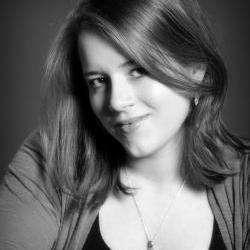Celebrating Britten’s centenary, tonight’s performance of his five canticles seemed particularly fitting. Written throughout his composing career, they are a testament to the composer’s affinity for poetry and skill at writing with particular performers in mind, and they provide an intimate commentary on Britten’s large-scale works.
The first of the set was written in 1947 and can be seen as a tribute to Peter Pears, and his and Britten’s increasingly settled relationship. The text is taken from A Divine Rapture, a poem by Francis Quarles, which is based on the Song of Solomon. The rolling piano accompaniment creates watery imagery, lapping at the vocal line like waves at the shore, and this was sensitively interpreted by Julius Drake. Mark Padmore provided a beautifully light tone for the opening stanza, with fantastic diction bringing out the evocative text. Padmore’s evenness of tone across the range, with a diversity of vocal colour at his disposal, served to complement the deliberate, but never contrived, word-painting in the accompanimental part.
Canticle II is a more obviously operatic piece, taking the form of a conversation between Abraham, Isaac and God. The story had fascinated Britten for many years and he wrote this setting in January 1952, soon after the world première of Billy Budd. Scored for contralto, tenor and piano, it was written for Kathleen Ferrier, who was a favourite collaborator of the composer’s. Britten wrote it for a series of fundraising concerts for the English Opera Group, to be performed by Ferrier, Pears and Britten himself. It is principally based around a dialogue between the Boy and the Father, with the two singing together at times to represent the voice of God. The duet passages were particularly effective, with Iestyn Davies joining Padmore to sing the haunting words of God. The crystal-clear tone and the ease with which the singers delivered the text was quite magical, and the juxtaposition of dissonant passages and the forthright unison was deftly managed. The heart-wrenching unaccompanied passage in which the boy accepts his fate was simple and beautiful – almost prayer-like in character.
We then heard Britten’s final canticle, The Death of Saint Narcissus, written during the final years of Britten’s life, in 1974. Britten had recently undergone an operation for a defective aortic valve which had been successful, but he never regained strength enough to play the piano, so the piece was written for Pears and harpist Osian Ellis. Tonight’s rendition was suitably eerie, with flowing broken chords and disjunct staccato chords illustrating T.S. Eliot’s complex and unsettling text.
Another T.S. Eliot text is the subject for Britten’s fourth canticle, The Journey of the Magi (1971). Completed shortly before Death in Venice, it was a showcase for the opera’s leading interpreters – Pears, John Shirley-Quick and James Bowman. The setting is notably vivid, with chromatic melodic lines and obsessive, obstinate figures. The dynamic range of all three of tonight’s singers was impressive, and the addition of Marcus Farnsworth to our previous duo was well balanced. The stumbling piano part, which echoes the uneven gait of camels, provided a ritornello-like form over which the three wise me, Melchior, Caspar and Balthasar, told their tale.
The concert came to a close with the third canticle, Still falls the rain: The raids 1940. Night and dawn, which was premièred at Wigmore Hall on 28 January 1955. Intended as a memorial to the young Australian pianist Noel Mewton-Wood, who committed suicide in 1953 after the death of his boyfriend, this is the most stark setting, with the horn solo, tenor and piano sounding as if in a vacuum. The austerity of tone was reflected in Padmore’s controlled rendition, with stark piano and expansive, desolate horn melodies. The quote from Christoper Marlowe’s Doctor Faustus, set as Sprechgesang (a kind of half-speech, half-song effect), was particularly affecting, and the audience were left in a stunned silence for several seconds before the well-deserved tumultuous applause.


